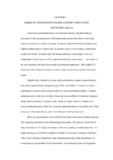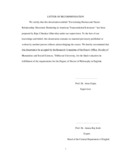Please use this identifier to cite or link to this item:
http://archive.nnl.gov.np:8080/handle/123456789/197| Title: | AMERICAN TRANSCENDENTALISM: LITERARY EPOCH WITH BIOCENTRIC IDEALS |
| Authors: | Chitrakar, Raju |
| Keywords: | ecocriticism |
| Issue Date: | 26-Mar-2019 |
| Abstract: | A beginner with philosophical bent may assume that since human being is one of the member species of the biotic community, it must maintain congenial relationship with other fellow members of the larger home. To his/her surprise, they might find just opposite practices in humans as guided by anthropocentric world view, which claims superiority of human beings over nature. At the same time, such a person might also come across mainly two non-anthropocentric world views that appeal humans to be friendly to the biotic community. These views are of American transcendentalism and ecocriticism. The former is no longer in practice and the latter is still in its gaining-maturity phase. I have studied both of these simultaneously so that some clues could be found for making the foundation of non-anthropocentric world views further solid. The work studies American transcendental literature from the perspective of ecocriticism focusing on human and nature relationship so that some connectivity between the two locations of thoughts on human and nature relationships could be established. American transcendental literature has been studied also as providing methodological orientations to ecocriticism. Ralf Waldo Emerson's Nature, Henry David Thoreau's Walden and Walt Whitman's Leaves of Grass are the selected texts. The dominant concept of Emerson as presented in his paramount work Nature is that nature is the spiritual representation of the universal soul. He takes the universal soul as the ultimate reality. Therefore, nature is the source for importing human motivations for him. Similarly, Thoreau's major work Walden implicitly claims that human being is no more different from nature. And hence, one can trace one’s original relation with nature by being immersed in it. And Whitman's representative work Leaves of Grass presents the view that qualities like love and freedom can be conceived as some of the essentials of vii nature, and hence humans, being a part of nature, have to apply such natural values in their lives. These views of American transcendental literature are conceivable in ecocriticism to a lesser or higher degree. |
| URI: | http://103.69.125.248:8080/xmlui/handle/123456789/197 |
| Appears in Collections: | 300 Social sciences |
Files in This Item:
| File | Description | Size | Format | |
|---|---|---|---|---|
| Raju Chitrakar's Ph. D. dissertation - text.pdf | 1.29 MB | Adobe PDF |  View/Open | |
| Raju Chitrakar's Ph. D. dissertation - title page.pdf | 226.89 kB | Adobe PDF |  View/Open |
Items in DSpace are protected by copyright, with all rights reserved, unless otherwise indicated.